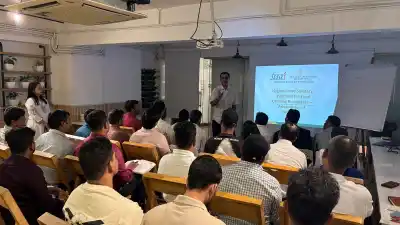

Bhubaneswar, Mar 4: On the occasion of Holi, the festival of colors, Odisha's political leaders extended their heartfelt greetings and best wishes to the people of the state. Governor Dr. Hari Babu Kambhampati, Chief Minister Mohan Charan Majhi, Leader of the Opposition Naveen Patnaik, and Deputy Chief Ministers Kanak Vardhan Singh Deo and Pravati Parida took to social media to convey their warm messages.
Governor Kambhampati shared his greetings on social media platform X, saying, “Greetings and best wishes on the occasion of the festival of colors, Holi. On this auspicious occasion, I pray to Lord Jagannath that this festival fills everyone’s life with happiness, peace, and prosperity.” He emphasized the importance of celebrating the festival in an eco-friendly manner, urging people to use natural and herbal colors that are safe for the environment.
Chief Minister Mohan Charan Majhi, in his post, highlighted the significance of Holi as a festival of joy and brotherhood. He wished that the vibrant festival fills the lives of all Odias with hope, goodwill, and prosperity. “With the blessings of Lord Jagannath, may the life of every Odia be colored with happiness, peace, and prosperity,” he wrote, while also encouraging people to celebrate the festival safely and responsibly.
Leader of the Opposition and BJD president Naveen Patnaik also shared his wishes, expressing, “Heartfelt greetings on the joyous festival of colors, Holi. May this festival of joy and celebration fill everyone’s life with happiness. Wishing you all a safe and delightful celebration of Holi.”
Deputy Chief Ministers Kanak Vardhan Singh Deo and Pravati Parida also conveyed their best wishes, praying for the well-being, happiness, and prosperity of all the people of Odisha.
The leaders’ messages reflected the spirit of unity, joy, and eco-consciousness, encouraging everyone to celebrate Holi in a peaceful and joyful manner while ensuring safety and environmental sustainability.